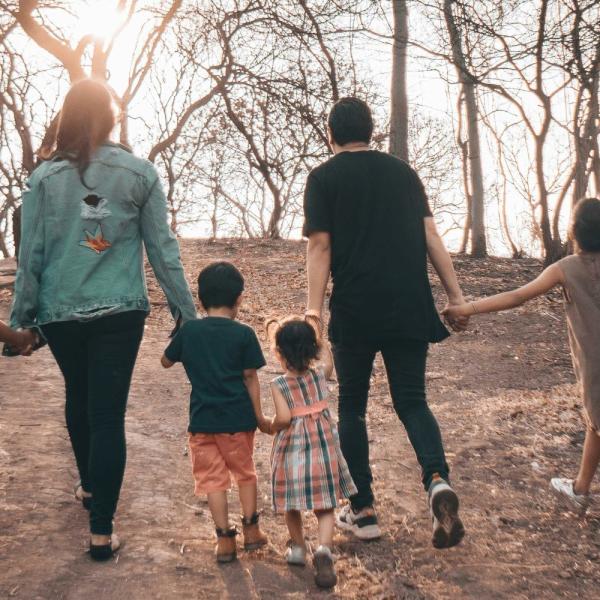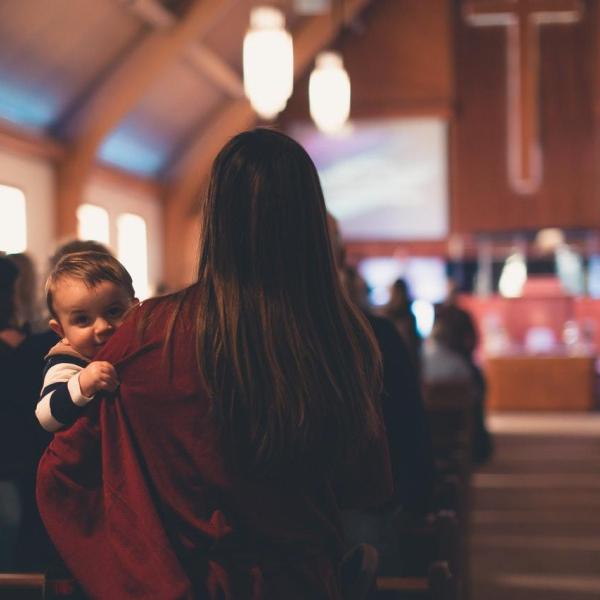How will fostering affect my birth children?
Will they feel left out? Will they all get on? How will they cope when a child moves on?
When exploring whether to foster, those who are already parents will consider how it might impact their birth children. Such a big life change can bring up many questions: Will they feel left out? Will they all get on? How will they cope when a child moves on?
I spoke to sister and brother, Becks and Blake. They’re adults now, but they began fostering as a family when Becks was 3 years old. They took the time to share their experience, and the impact it had on their childhood. Here’s what they said.
What was your overall experience of being foster siblings?
Blake: We started with respite. It was a novelty. We were young. We had a boy stay with us who was one day younger than me, so he was like a playmate. For us it was fun, games, play, everyday life. There certainly was a range of people that came.
Becks: Having social workers coming in and out was something to get used to but it became normal.
How did your Mum and Dad explain fostering to you?
Becks: I can’t remember much, they explained it more later in life. They said bad things happened to the children and I remember figuring it out then. We never knew any of the circumstances, I just accepted them.
Blake: We were so young when they started so it felt normal. Plus, our wider family also fostered, so it felt normal.
Did you find you had to compete for your parent’s attention?
Blake: Not so much. None of us felt left out. There was a consistency. Mum and Dad had a great balance of giving us quality time and family time, which was great.
Becks: I loved having a sister when we fostered a girl who was close to me in age. We got up to all sorts of mischief! I do remember Mum and Dad making things really fun for us. They made star charts, they had different activities for foster children but then time for us too. We never felt left out.
How did you process foster children moving on?
Becks: I remember being really sad when one child left as I wanted a sister. She had been with us a while.
I remember Mum being upset at that because she got into the car with her new Mum and Dad and called her Mummy. My Mum answered 'Yes' and then realised she wasn’t talking to her. Mum was devastated. I remember being upset too. I still have some of the cards she wrote to me after, telling me how much fun she was having.
Blake: We knew they weren't staying forever, and the plan was for them to be adopted. It was framed to us that this was the best thing for them.
Did you feel like you had a role to play?
Blake: I suppose we were like a middle ground. We're all strangers to begin with, but as kids we can go play in the park! Trying to get to know two strange adults its daunting.
What would you say to a family considering fostering?
Blake: We certainly don’t feel like we missed out on anything, I feel we gained. If you look at the opportunities your birth children have, not every child has that same opportunity. You could give them that without taking anything away from your own children’s childhood.
Becks: Mum and Dad always tell us that it wasn't easy, dealing with it all and social workers. It can be intrusive. You can hear a lot of negative stories about social workers and that doesn’t help. We had a great childhood, but I know every family is different.
Becks' experience encouraged her to rethink what family is. As an adult herself now, she is becoming a foster carer. Becks can now pass on the gift she received in her childhood to both her birth children and the foster children they welcome into their home. Her role growing up as a fostering sibling breathed a gift within her and now, she wants to do something about the need around her.
Whilst not all experiences will be like this, it does not undervalue the importance of the legacy of the open door. The seeds of hospitality sown, welcoming the stranger, making room at the table, connecting with others and building empathy with the needs on our doorstep. These are all intrinsic values that can be birthed in our children as we give them the gift of looking after those that need it.
You might also be interested in

Articles
Reflecting on Good Friday
Despite the outward appearance of a crushing setback, Good Friday was a day of triumph, unveiling God's divine plan and the true nature of his reign.
Read more
Articles
The Church: a community of shared light
Our Northern Ireland and Nations’ Lead, Roger Cooke shares some reflections on fire, community and the Olympic Games.
Read moreI would like to find out what is
going on in my area
Join our mailing list for the latest Home for Good news and ways to get involved.
Together we can find a home for every child who needs one.
£25 per month could help us create and collate inspiring articles and blogs that encourage and inform the families and communities who care for vulnerable children








 Thank you, you're giving:
Thank you, you're giving: